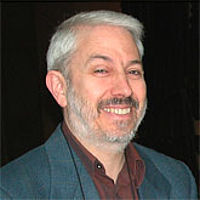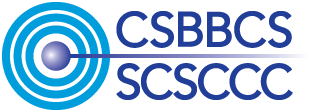2012 Richard C. Tees Distinguished Leadership Award Winner: Dr. Raymond Klein

When I applied to graduate school (circa 1969), my letter of introduction included the naively hopeful statement that "I am interested in learning about how the mind works". Who better to learn this from than Michael Posner under whose supervision I completed MA and PhD degrees in Experimental Psychology at the University of Oregon. After graduating from Oregon in 1974 I joined the Department of Psychology (recently renamed Psychology and Neuroscience) at Dalhousie University where I have spent my entire academic and scientific career. Today I consider myself a neo-Hebbian cognitive scientist with a penchant for interdisciplinary collaboration aimed at the same question, but with some maturity, I would insert the word, "more" after "learning," and would add, at the end, "and how it is implemented by the brain."
I was recently asked to generate a short version of a longer citation (for my induction as a fellow of the Royal Society) that was based on materials –focussing on my scientific contributions– that were graciously submitted by my nominators. Because the activities are so important to me, I suggested that this short citation say: "...dedicated advocate, collaborator and mentor."
Many of my advocacy activities have been aimed at advancing our discipline. I served on NSERC's Psychology GSC in the 1980s; as associate editor of JEP:HPP in the early 2000s; and as a member of the editorial boards of several journals, including (almost continuously since 1984) the Canadian Journal of Experimental Psychology. During my first 10 or so years as a Canadian academic, I regularly attended the annual meetings of the Canadian Psychological Association. This was a great way, then, for me to meet my Canadian colleagues. After the elimination of the Experimental Division of CPA, and in an effort to provide a mechanism for cognitive scientists to continue to participate in the Canadian Psychological Association, I founded, and chaired in 1989-90, a new section of the Association: Perception, Learning & Cognition. Then, to provide better forum for Canadian psychology as a natural science and an organization that would represent the interests of scientists who would look to the (then) Psychology Grant Selection Committee of NSERC for support, I helped form, with Mel Goodale and others, our society (the Canadian Society for Brain, Behavior and Cognitive Science). I was a member of the executive committee of BBCS from its formation in 1990 until 1995 and spent one of these years as our organization's president. Now it is through attendance at the annual meetings of BBCS that we get to know each other.
In 1986 I became my department's graduate coordinator and served in this role (overseeing new graduate programs in Clinical Psychology and in Psychology/Neuroscience) for over 20 years. When, circa 2000, I chaired a Senate Committe to review our Faculty of Graduate Studies, I noted that "quality graduate programmes are the linchpin of Dalhousie's current reputation as a first rate university, and of our continued success as a research engine for Atlantic Canada" a characterization that applies to all of Canada's full-service Universities. Four years ago I agreed to serve as chair of the Dalhousie Department. I didn't say "yes" to being Chair because I wanted this role, but –and I am surprised to report this– I am quite enjoying the responsibilities and challenges and have signed on for a second term. As chair I participate in COGDOP (Chairs of Graduate Departments of Psychology) and CCDP (Canadian Chairs of Departments of Psychology). In this latter capacity I drafted, with Betty Ann Levy and Jean Saint-Aubin a letter to NSERC pointing out serious concerns with some of the Discovery Grant decision-making policies related to HQP. The problems we identified remain serious and not at all specific to our discipline. The industry-focussed mind-set of the current federal government is posing a much more serious hazard for the future of basic research in Canada and, unfortunately, for the independence and integrity of Canada's universities.
While I can carry on research independently, I derive the greatest enjoyment from collaborative research with trainees and colleagues. With my trainees we are usually (but not always) staying within a discipline or project area. When I collaborate with colleagues it is often because of my interest in bringing some new methodology to bear on questions that interest me; or vice versa. Some of my collaborations have been with Doug Munoz and his laboratory at Queens (on the selection of objects by the primate oculomotor system), with Thomas Trappenberg and his computer science students at Dalhousie (on learning about eye movements and attention through computationally explicit models whose pseudo-neurons represent real ones), with Gail Eskes (on understanding disorders of attention and trying to remediate them), with Jean Saint-Aubin and his trainees at the Université de Moncton (on learning about reading through a dual-task methodology), with the Bank of Canada (on the perception and detection of counterfeit banknotes). Some of my basic research interests and skills have implications for real-world problems, and I have applied them to such topics as man-machine interface design, distracted driving, problem gambling, cognitive rehabilitation, currency design, eye witness testimony and environment & sustainability.
My laboratory provides an ideal setting for young scientists to learn about the methods of cognitive science (e.g. mental chronometry, dual task, experimental design, etc.) and a neo-Hebbian desire to understand how mind is implemented by the brain using a variety of cognitive neuroscientific methods. Reflecting my dedication & contributions to graduate training, I was the 1st recipient of Dalhousie’s Distinguished Contribution to Graduate Studies Award(in 2000) and the 2009 winner of Dalhousie's Outstanding Graduate Advisor award. I am fortunate to have attracted some outstanding trainees to my laboratory and for the exciting intellectual atmosphere in, and great productivity of, my laboratory I am grateful for their scholarship, intelligence, dedication and enthusiasm.

